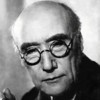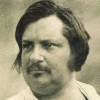And if some god should offer me the privilege of returning to babyhood again, cradle, wailing, and all, I would absolutely refuse. I would have no desire, once my course were run, to be haled back from the race’s end to the starting-line.
[Et si quis deus mihi largiatur ut ex hac aetate repuerascam et in cunis vagiam, valde recusem, nec vero velim quasi decurso spatio ad carceres a calce revocari.]Marcus Tullius Cicero (106-43 BC) Roman orator, statesman, philosopher
De Senectute [Cato Maior; On Old Age], ch. 23 / sec. 83 (23.83) (44 BC) [tr. Copley (1967)]
(Source)
(Source (Latin)). Alternate translations:
And if some god wolde give me puissaunce that I whiche am an olde man myght retourne ayen in to childhode and that I shulde braye and krye in my swathyng cloth and in my cradelle like a childe, I wolde it not but I wolde even refuse it.
[tr. Worcester/Worcester/Scrope (1481)]
I will say more, if God would grant me now in this age to return again to my infancy and to be as young as a child that lieth crying in his cradle, I would refuse and forsake the offer with all my might; neither would I when I have already in a manner run the whole race and own the goal, be again revoked from the end marks to the lists, or place where I took my course at the first setting out. For who would be contented, when he hath gotten the best game, to be forced to race again for the same?
[tr. Newton (1569)]
And if any god would grant me to be now a child in my cradle againe, and to be young, I would refuse it. Neither would I, having runne my full course, be called back again.
[tr. Austin (1648)]
Should some God tell me, that I should be born,
And cry again, his offer I should scorn;
Asham'd when I have ended well my race,
To be led back, to my first starting place.
[tr. Denham (1669)]
And should any of the Gods give me the Liberty of beginning again the Circle of my Years, I should desire to be excused, and be unwilling to begin the Race again, when I am just arrived at the Goal.
[tr. Hemming (1716)]
Or should any heavenly Power grant me the Privilege of turning back, if I pleased, from this Age to Infancy, and to set out again from my Cradle, I would absolutely refuse it; for as I have now got well nigh to the End of my Race, I should be extremely unwilling to be called back, and obliged to start again.
[tr. Logan (1744)]
The sincere truth is, if some divinity would confer upon me a new grant of my life, and replace me once more in the cradle, I would utterly, and without the least hesitation, reject the offer; having well-nigh finished my race, I have no inclination to return to the goal.
[tr. Melmoth (1773)]
But if any god should grant me that I should become a boy again and wail in the cradle, I would strenuously decline it; nor indeed would I wish, as if I had run my course, to be called back from the goal to the starting-post.
[Cornish Bros. ed. (1847)]
For if any god should grant me, that from this period of life I should become a child again and cry in the cradle, I should earnestly refuse it: nor in truth should I like, after having run, as it were, my course, to be called back to the starting-place from the goal.
[tr. Edmonds (1874)]
Indeed, were any god to grant that from my present age I might go back to boyhood, or become a crying child in the cradle, I should steadfastly refuse; nor would I be willing, as from a finished race, to be summoned back from the goal to the starting-point.
[tr. Peabody (1884)]
Nay, if some god should grant me to renew my childhood from my present age and once more to be crying in my cradle, I would firmly refuse; nor should I in truth be willing, after having, as it were, run the full course, to be recalled from the winning-crease to the barriers.
[tr. Shuckburgh (1895)]
Nay, if some God should offer to me now
Once more to be a boy, and shed sad tears
Within my cradle, I'd refuse the gift.
Nor do I wish, my course being fully run,
To leave the winning for the starting post.
[tr. Allison (1916)]
Nay, if some god should give me leave to return to infancy from my old age, to weep once more in my cradle, I should vehemently protest; for, truly, after I have run my race I have no wish to be recalled, as it were, from the goal to the starting-place.
[tr. Falconer (1923)]
Indeed if some god granted me the power to cancel my advanced years and return to boyhood, and wail once more in the cradle, I should firmly refuse. Now that my race is run, I have no desire to be called back from the finish to the starting point!
[tr. Grant (1960; 1971 ed.)]
If I knew that some god had arranged for me to be transformed into an infant bawling in its cradle, I would make a dreadful fuss; once my race was run and I was coming down the final stretch, I would have no desire to be sent all the way back to the starting gate.
[tr. Cobbold (2012)]
And by the same token, if any miracle wouild grant me the chance to be a boy again and to cry in the nursery, I would certainly refuse. There is no way I want to be recalled, as it were, from the finish line to the starting blocks now that I have run the whole race.
[tr. Gerberding (2014)]
And if some god allowed me to get back again
To the cradle, as one of those crying toddlers,
From my ancient age, I’d refuse there and then.
Having run most of my course, I couldn’t face
To be recalled from the finish to the starting place.
[tr. Bozzi (2015)]
Truly, if some god graciously granted that I could put aside my years and start over, crying in my cradle again, I would vehemently refuse. Since I have almost finished my race, why would I want to be called back to the starting line?
[tr. Freeman (2016)]
Even if some god should permit that I would return to the time of my birth from this age, I would sternly refuse -- for, truly, I do not wish to restart as if to retrace a race run from the finish line to the starting post.
[tr. @sentantiq (2018), sec. 84]
Quotations about:
repetition
Note not all quotations have been tagged, so Search may find additional quotes on this topic.
According to Oscar Wilde, all that experience teaches us is that history repeats itself, and that the sin we do once and with loathing we will do many times and with pleasure. But the neurotic knows that the sin he does once and with loathing he will do many times and with loathing.
Innumerable are the illusions and legerdemain-tricks of Custom: but of all these, perhaps the cleverest is her knack of persuading us that the Miraculous, by simple repetition, ceases to be Miraculous.
Thomas Carlyle (1795-1881) Scottish essayist and historian
Sartor Resartus, Book 3, ch. 8 (1831)
(Source)
I tell you this, and I tell you plain:
What you have done, you will do again;
You will bite your tongue, careful or not,
Upon the already-bitten spot.Mignon McLaughlin (1913-1983) American journalist and author
The Neurotic’s Notebook, ch. 5 (1963)
(Source)
If you cannot enjoy reading a book over and over again, there is no use reading it at all.
History never repeats itself, but the Kaleidoscopic combinations of the pictured present often seem to be constructed of the broken fragments of antique legends.
Mark Twain (1835-1910) American writer [pseud. of Samuel Clemens]
The Gilded Age: A Tale of To-Day, ch. 47 (1874) [with Charles Dudley Warner]
(Source)
Probably the source of the Twain misquote "History does not repeat itself, but it rhymes" (which does not appear prior to 1970).
More discussion of this quotation: History Does Not Repeat Itself, But It Rhymes – Quote Investigator
History, we know, is apt to repeat herself, and to foist very old incidents upon us with only a slight change of costume.
George Eliot (1819-1880) English novelist [pseud. of Mary Ann Evans]
Janet’s Repentance, ch. 10 (1859)
(Source)
Beware:
All too often,
We say
What we hear others say.
We think
What we’re told that we think.
We see
What we’re permitted to see.
Worse!
We see what we’re told that we see.
Repetition and pride are the keys to this.
To hear and to see
Even an obvious lie
Again
And again and again
May be to say it,
Almost by reflex
Then to defend it
Because we’ve said it
And at last to embrace it
Because we’ve defended it
And because we cannot admit
That we’ve embraced and defended
An obvious lie.Thus, without thought,
Without intent,
We make
Mere echoes
Of ourselves —
And we say
What we hear others say.Octavia Butler (1947-2006) American writer
Parable of the Talents, ch. 18, epigram (1998)
(Source)
Internally cited to the book's scripture, Earthseed: The Books of the Living,, and to a poem, "Warrior," written by the protagonist's uncle, Marcos Duran.
I have no stomach to repeat a long story that has already been plainly told.
[Ἐχθρὸν δέ μοί ἐστιν
αὖτις ἀριζήλως εἰρημένα μυθολογεύειν.]Homer (fl. 7th-8th C. BC) Greek author
The Odyssey [Ὀδύσσεια], Book 12, l. 453ff (12.453) [Odysseus] (c. 700 BC) [tr. Verity (2016)]
(Source)
Original Greek. Alternate translations:
And, for me to grow
A talker-over of my tale again,
Were past my free contentment to sustain.
[tr. Chapman (1616)]
Nor do I love the same tale twice to tell.
[tr. Hobbes (1675)]
Enough: in misery can words avail?
And what so tedious as a twice-told tale?
[tr. Pope (1725)]
I told it yesterday, and hate a tale
Once amply told, then, needless, traced again.
[tr. Cowper (1792), ll. 530-31]
The wordy tale, once told, were hard to tell again.
[tr. Worsley (1861), st. 61]
Distasteful is it to me -- aye again
To harp on tales already clearly told!
[tr. Bigge-Wither (1869)]
It liketh me not twice to tell a plain-told tale.
[tr. Butcher/Lang (1879)]
And irksome 'tis to me
To tell again of matters that told out clearly be.
[tr. Morris (1887)]
And it is irksome to tell a plain-told tale a second time.
[tr. Palmer (1891)]
I hate saying the same thing over and over again.
[tr. Butler (1898)]
And it is hateful [ekhthron] for me to say the same thing over and over again.
[tr. Butler (1898), rev. Power/Nagy]
It is an irksome thing, meseems, to tell again a plain-told tale.
[tr. Murray (1919)]
It goes against my grain to repeat a tale already plainly told.
[tr. Lawrence (1932)]
It goes against the grain with me to repeat a tale already plainly told
[tr. Rieu (1946)]
Those adventures made a long evening, and I do not hold with tiresome repetition of a story.
[tr. Fitzgerald (1961)]
It is hateful to me
to tell a story over again, when it has been well told.
[tr. Lattimore (1965)]
I do not hold with telling over what has been well told.
[tr. Mandelbaum (1990)]
It goes against my grain to repeat a tale told once, and told so clearly.
[tr. Fagles (1996)]
To me it is hateful telling again some tale that has once been told to perfection.
[tr. Merrill (2002)]
It is tedious for me to repeat a tale already plainly told.
[tr. DCH Rieu (2002)]
It is annoying, repeating tales that have been told before.
[tr. Wilson (2017)]
I really dislike repeating a tale that's been clearly narrated on a previous occasion.
[tr. Green (2018)]
And it’s an irritating thing, I think,
to re-tell a story once it’s clearly told.
[tr. Johnston (2019)]
The formula for prison is a lack of space counterbalanced by a surplus of time. This is what really bothers you, that you can’t win. Prison is lack of alternatives, and the telescopic predictability of the future is what drives you crazy.
Joseph Brodsky (1940-1996) Russian-American poet, essayist, Nobel laureate, US Poet Laureate [Iosif Aleksandrovič Brodskij]
“Less Than One,” Less Than One: Selected Essays (1986)
(Source)
I will leave it for the present, as this letter is already pretty long. Such is my desire, my anxiety for your perfection, that I never think I have said enough, though you may possibly think I have said too much; and though, in truth, if your own good sense is not sufficient to direct you, in many of these plain points, all that I or anybody else can say will be insufficient.
Lord Chesterfield (1694-1773) English statesman, wit [Philip Dormer Stanhope]
Letter to his son, #168 (18 Nov 1748)
(Source)
Chesterfield repeats the sentiment in a later letter, #194 (22 Sep 1749):
This letter is a very long, and so possibly a very tedious one; but my anxiety for your perfection is so great, and particularly at this critical and decisive period of your life, that I am only afraid of omitting, but never of repeating or dwelling too long upon anything that I think may be of the least use to you.
Repetition is the only form of permanence that Nature can achieve.
George Santayana (1863-1952) Spanish-American poet and philosopher [Jorge Agustín Nicolás Ruíz de Santayana y Borrás]
“Aversion from Platonism” (1914-18), Soliloquies in England and Later Soliloquies, #5 (1922)
(Source)
Don’t get discouraged because there’s a lot of mechanical work to writing. There is, and you can’t get out of it. I rewrote the first part of A Farewell to Arms at least fifty times. You’ve got to work it over. The first draft of anything is shit.
Don’t repeat yourself. It’s not only repetitive, it’s redundant, and people have heard it before.
Lemony Snicket (b. 1970) American author, screenwriter, musician (pseud. for Daniel Handler)
Who Could That Be At This Hour?, ch. 1 (2012)
(Source)
There is nothing that you may not get people to believe in if you will only tell it them loud enough and often enough, till the welkin rings with it.
Ouida (1839-1908) English novelist [pseud. of Maria Louise Ramé]
Wisdom, Wit, and Pathos, “Friendship” (1884)
(Source)
"Welkin" is an obsolete word for "heavens."
This is the Achilles heel of quotation collections: An initial error in one will be repeated so often by others that over time it gains authority through repetition alone.
Ralph Keyes (b. 1945) American author.
“Nice Guys Finish Seventh”: False Phrases, Spurious Sayings, and Familiar Misquotations, ch. 13 (1992)
(Source)
There is a role for bureaucracy; it’s very useful for certain tasks. In particular, it facilitates standardization and interchangeability. Bureaucracies excel at performing tasks that must be done consistently whether the people assigned to them are brilliant performers or bumbling fools. You can’t always count on having Albert Einstein in the patent office, so you design its procedures to work even if you hire Mr. Bean by mistake.
Hegel remarks somewhere that all great world-historic facts and personages appear, so to speak, twice. He forgot to add: the first time as tragedy, the second time as farce.
Karl Marx (1818-1883) German philosopher, economist, sociologist, historian, journalist
The Eighteenth Brumaire of Louis Bonaparte, ch. 1. (1852) [tr. Padover]
(Source)
Often paraphrased: "History repeats itself, first as tragedy then as farce."
Sow an act, and you reap a habit. Sow a habit, and you reap a character. Sow a character, and you reap a destiny.
Charles Reade (1814-1884) English novelist and dramatist
(Attributed)
Attributed in Notes and Queries, 9th series, vol. 12 (7 Nov 1903). Not found in any of his works, but attributed to many other authors over time. See here for more discussion.
The gods had condemned Sisyphus to ceaselessly rolling a rock to the top of a mountain, whence the stone would fall back of its own weight. They had thought with some reason that there is no more dreadful punishment than futile and hopeless labor.
Albert Camus (1913-1960) Algerian-French novelist, essayist, playwright
“The Myth of Sisyphus”, The Myth of Sisyphus (1942)
(Source)
The misery of man proceeds not from any single crush of overwhelming evil, but from small vexations continually repeated.
Samuel Johnson (1709-1784) English writer, lexicographer, critic
Lives of the English Poets, “Pope” (1781)
(Source)
When we are convinced of some great truths, and feel our convictions keenly, we must not fear to express it, although others have said it before us. Every thought is new when an author expresses it in a manner peculiar to himself.
Forecast: To observe that which has passed, and guess it will happen again; to anticipate the future by guessing at the past; to predict that an event will happen, if it does, by basing calculations on events that have already happened, if they did.
Elbert Hubbard (1856-1915) American writer, businessman, philosopher
The Roycroft Dictionary (1914)
(Source)
In fact, nothing is ever said that has not been said before.
[Nullum est iam dictum quod non dictum sit prius.]
Terence (186?-159 BC) African-Roman dramatist [Publius Terentius Afer]
The Eunuch [Eunuchus], l. 41, Prologue (161 BC) [tr. Bolton (2019)]
(Source)
Alternate translations:
- "In short, there's Nothing say'd , but what before / May have been say'd." [tr. Cooke (1755)]
- "In fine, nothing can be said now, that may not have been said before." [tr. Patrick (1767)]
- "Nothing's said now, but has been said before." [tr. Coleman (1768)]
- "In fine, nothing is said now that has not been said before." [tr. Riley (1853)]
- "Ah, there is nothing new beneath the sun, / Whatever is, or may be, has been done." [tr. Rose (1870)]
- "In fact nothing is said that has not been said before." [tr. Sargeaunt (1918)]
- "The bottom line: you can't say anything that's never been said before." [tr. Christenson (2012)]
- There's nothing ever said, unsaid before. [tr. Bolton (2019), shortened Prologue]
We are what we repeatedly do. Excellence, therefore, is not an act but a habit.
Aristotle (384-322 BC) Greek philosopher
Nicomachean Ethics [Ἠθικὰ Νικομάχεια] (c. 325 BC) (paraphrase)
(Source)
Variants:Not actually Aristotle, but a summary by Will Durant, The Story of Philosophy: The Lives and Opinions of the World's Greatest Philosophers (1926), ch. 2 "Aristotle and Greek Science," sec. 7 "Ethics and the Nature of Happiness" (1926):
- "We are what we repeatedly do. Excellence, then, is not an act, but a habit."
- "We are what we repeatedly do, therefore excellence is not an act, but a habit."
Excellence is an art won by training and habituation: we do not act rightly because we have virtue or excellence, but we rather have these because we have acted rightly; "these virtues are formed in man by his doing the actions"; we are what we repeatedly do. Excellence, then, is not an act but a habit: "the good of man is a working of the soul in the way of excellence in a complete life ... for as it is not one swallow or one fine day that makes a spring, so it is not one day or a short time that makes a man blessed and happy."
The quoted phrases are from the Nicomachean Ethics, Book 2, ch. 4; Book 1, ch. 7.































